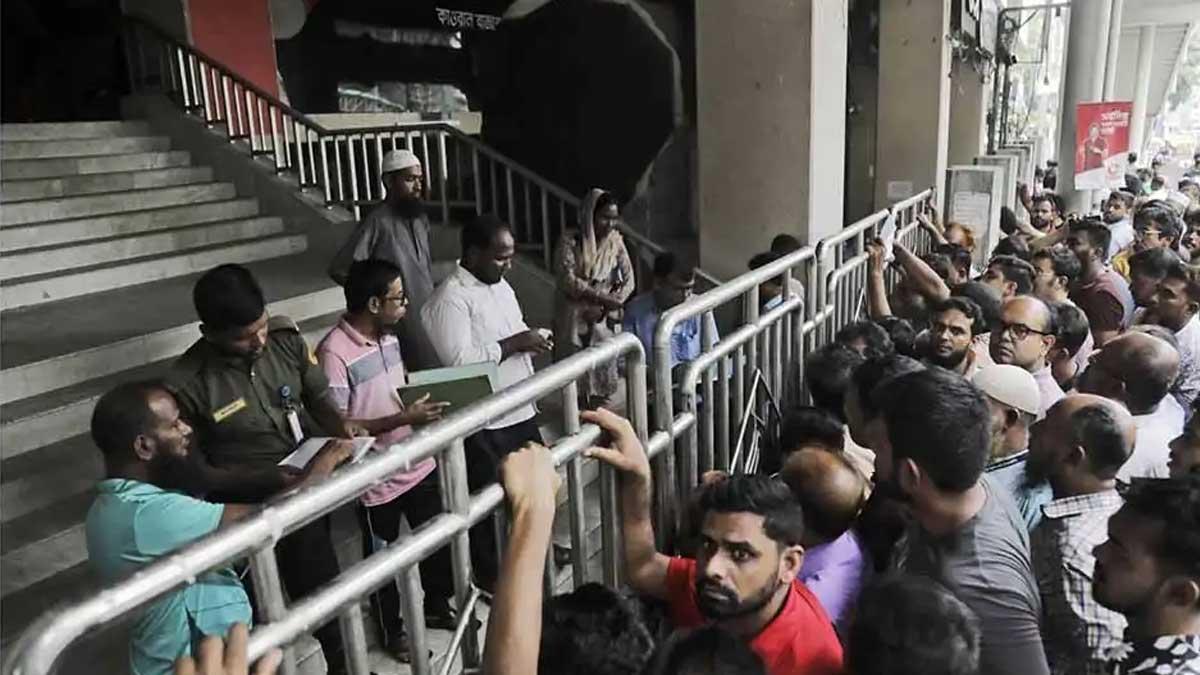Bangladesh gradually came back to the usual way of life after a tumultuous five-day-long student protest movement directed against the government's quota in jobs. Rush hour traffic was back on the streets of the capital, with banks, garment factories, and some internet services resuming operations cautiously.
The country has been in the throes of an Internet blackout since Thursday last week, which very strongly limited information flow. Poor connectivity was resumed on Tuesday night, with priority access initially given to essential institutions like banks, technology, and media. Mobile phones are back to life, but users complain that the service became very slow, with services like Facebook still suspended.
The curfew has been relaxed for seven hours in the capital and other districts. The security presence of army troops, the Border Guard Bangladesh, trained riot police, and the rapid action battalion continues to be considerable, but checkpoint searches have either been eliminated or considerably reduced. City and inter-district bus and ferry services resumed within the times the curfew has been relaxed, but schools and colleges remain closed.
The brutality has resulted in many deaths, students being part of the victims; it has been reported that some media said 184 people were killed. The government has ordered a judicial inquiry that is to be headed by a High Court judge.
Authorities have blamed the violence on the fundamentalist Jamaat-e-Islami and its student wing, Chhatra Shibir, with support from the main opposition Bangladesh Nationalist Party led by former Prime Minister Khaleda Zia. The BNP has rejected the charges and blamed the violence on the government.
The police are on the lookout for the miscreants who damaged the vital assets of the state, including the state-owned Bangladesh Television. "The anti-liberation Jamaat-BNP and militants carried out the unprecedented mayhem one after another joining their hands. Never did we see attacks on police stations and jails. .. this is new to us," Home Minister Asaduzzaman Khan Kamal said. He vowed to pursue and prosecute all involved in the violence.
Reports indicate that over 2,500 suspected anarchists have been rounded up. And on Sunday, the Appellate Division of the Supreme Court of Bangladesh had ordered simplifying of the quota system by slashing reserved posts from 56 per cent to seven per cent. Out of seven per cent, seven shall go to 1971 war veterans and two per cent will be reserved for ethnic minorities, transgender and the disabled parts of the population, leaving 93 percent for open competition upon merit. The administrative orders in this respect have been conveyed by the government through a Gazette notification.
The student agitators who spearheaded the movement have withdrawn their agitation program, under the apologies of the loss of lives. One of the leaders commented that reform came with a very high price.
Junior Minister for Information and Broadcasting Mohammad Ali Arafat told foreign media, "We never wanted the casualties; it was very, very unfortunate and unwanted. .. every incident, and casualty will be independently investigated." The minister assured the judicial committee will properly investigate every aspect of the situation, whoever is involved.
Key garment and textiles industries, pivotal to its export earnings, resumed after days of closure in Bangladesh due to unrest. SM Mannan with the Bangladesh Garment Manufacturers and Exporters Associations said, "All of our factories are open today… everything is going smoothly." The southeastern Chattagram port is also handling cargoes, and the highways, which facilitate the movement of containers, have also been reopened.
Read also | Macron Delays New PM Appointment Until After Olympics
Read also | UN Reports Mass Displacement in Gaza After Latest Israeli Evacuation Orders


















